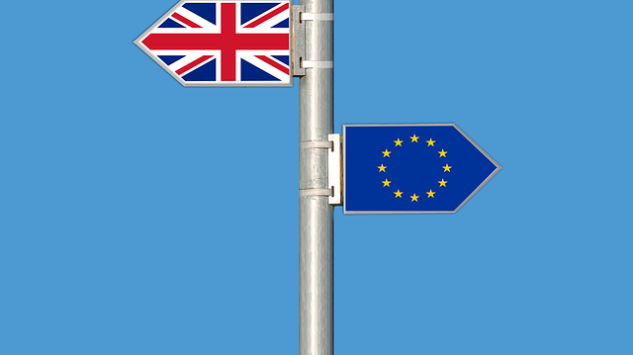Issue Briefs

Parliamentary procedural obstacles add to the Brexit mess
Graham Bardgett
March 20, 2019
A gigantic spanner thrown into the workings of the affairs of State left Downing Street apparently deadlocked over what happens next in the Brexit drama. One Government official, the Solicitor General, even speculated that Parliament could be procedurally suspended to solve the impasse. Was Brexit going to have to be delayed? Would Brexit be delayed for weeks or months? Or would Brexit be cancelled altogether with a request for Article 50 to be revoked?
Speaker brings up old rule
The Speaker of the House of Commons, John Bercow, ruled that Prime Minister Theresa May could not be allowed to bring back her deal agreed with the EU for a third time if Parliament had already rejected it twice by huge majorities. He said he was quoting Parliament’s own rules. But it left 10 Downing Street apparently deadlocked. Now the best legal brains and advisors were immediately at work to try to solve the problem.
Mrs May was due to head to Brussels again for Thursday’s Summit. With 11 days to go before the UK is due to leave the EU, ministers have warned of a looming “constitutional crisis”. The UK is still currently due to leave the EU on 29 March. Theresa May has negotiated the withdrawal deal with the EU, but it must also be agreed by MPs.
Cannot vote multiple times on the same text
They have voted against it twice, and the government has been considering a third attempt to get it through Parliament. Mr Bercow cited a convention, dating back to 1604, whereby a defeated motion could not be brought back in the same form during a parliamentary session. He said the second vote on the prime minister’s deal last week was “in order” as it was substantially different to the first, but any further votes must pass the “test” he had set out to be allowed.
Mr Bercow made his ruling in response to what he said were concerns from MPs across Parliament that the government intended to “bring the same deal back to the House ad infinitum” and ask them to “repeatedly pronounce on fundamentally the same proposition”. Last week’s second vote on the deal had not fallen foul of parliamentary conventions, he made clear.
This was because the government had secured “legal changes” to its existing agreement with the EU, set out in three new documents, and therefore what MPs had been asked to consider was different from the agreement rejected by 230 votes in January. But, quoting Erskine May, the parliamentary rulebook, the Speaker said “what the government cannot legitimately do is resubmit to the House the same proposition – or substantially the same proposition – as that of last week, which was rejected by 149 votes”. This convention, he added, was “necessary to ensure the sensible use of the House’s time and the proper respect for the decisions it takes”.
Pressed on what future votes would be allowed, Mr Bercow said he would make an “honest assessment” when the time came, and the ruling should be not be regarded as final.
A different text can be voted on
But he suggested there would have to be a “demonstrable” change in what MPs were being asked to vote on – “not different in terms of wording but different in terms of substance”. Ministers and MPs supportive of Mrs May’s deal expressed anger at the timing of Mr Bercow’s intervention.
Conservative MP James Gray, who said he plans to vote for the deal after rejecting it twice, said he was “absolutely furious”; while fellow Tory Greg Hands suggested Mr Bercow was the only person in the country who was “accountable to nobody”.
Solicitor General Robert Buckland warned there was now a “constitutional crisis” and suggested the onus was on the EU to come up with “new solutions” to enable MPs to vote on the deal again. “The Speaker has made his name by being interventionist,” he said. “Frankly we could have done without this; but it is something we are going to have to deal with.” He suggested “there were ways around this” – including potentially cutting short the current session of Parliament to an end, a move which would lead to calls for a general election.
Diverse opinions
Opponents of the PM’s Brexit deal welcomed the Speaker’s ruling. Conservative former cabinet minister Owen Paterson said it was a “game-changer” and would “concentrate minds” ahead of an EU summit on Thursday – at which EU leaders will consider whether to grant the UK an extension to the Brexit process. He said the prime minister should make it very clear to her European counterparts that the “law of the land” stated the UK would leave, with or without a deal, on 29 March.
Sir Bill Cash, chairman of the European Scrutiny Committee, said it seemed to make an “enormous amount of sense” given that the Brexit deal has been defeated twice and there would need to be a “substantial difference” to allow a third vote. But the SNP’s Westminster leader Ian Blackford suggested there was now a “constitutional crisis” and he suggested the prime minister should “immediately” call a meeting of opposition leaders.
What will the EU do?
The EU’s official position is that they are waiting for Theresa May to come to a summit in Brussels on Thursday with a clear statement about how she plans to proceed, and there definitely won’t be any more negotiations when she gets here. Unofficially, EU officials wonder if the government can get itself out of this situation, either with Parliamentary wizardry or by coming up with UK-only additions to the package, such as new guarantees about the role of Northern Ireland’s Stormont Assembly in the future.
And could the joint UK/EU decision about an extension to the Brexit process, due to be taken on Thursday, be appended to the deal and then count as something new enough to justify another vote in the Commons? But explain to diplomats that the solution might be the Queen closing Parliament and re-opening a new session with a speech and their reactions are priceless.
Unending crisis
Throughout all this, it was Scotland that voted in the main to Remain in the EU. Northern Ireland and Wales also voted to Remain in the EU. And over the past two and a half years the Brexit Referendum vote of June 2016 has divided families, villages, towns and cities on what is best in the UK’s national interest.
 |
Graham Bardgett is a Global Policy Institute Fellow. He has reported for the Los Angeles Post Examiner and Baltimore Post Examiner and is a former BBC Radio News sub-editor in London and Veteran reporter of the Northern Ireland Troubles and Peace Process. He had five years on the news desk of BBC Northern Ireland, nine years as a security reporter on the Belfast Telegraph, four years as Ireland staff reporter for the Daily Mail, and was a correspondent for the Financial Times, Daily Mirror, Sunday Express, and Irish Daily Mail. During his career he has also reported from Berlin, Luxembourg, and Rome, and carried out public affairs critical incident consultancy work in Kazakhstan and in London. He had four years with PwC international accountants and consultants; and was previously a UK Government Higher Executive Press Officer. |
The views and opinions expressed in this issue brief are those of the author.